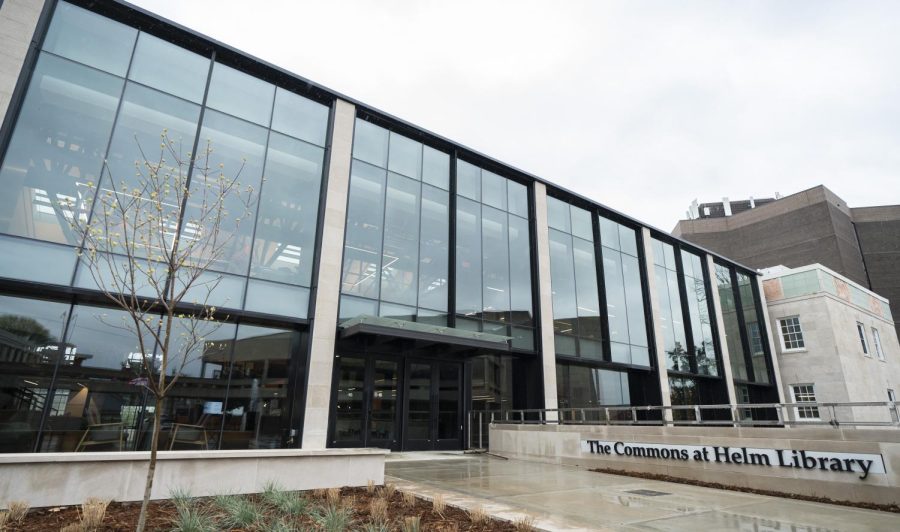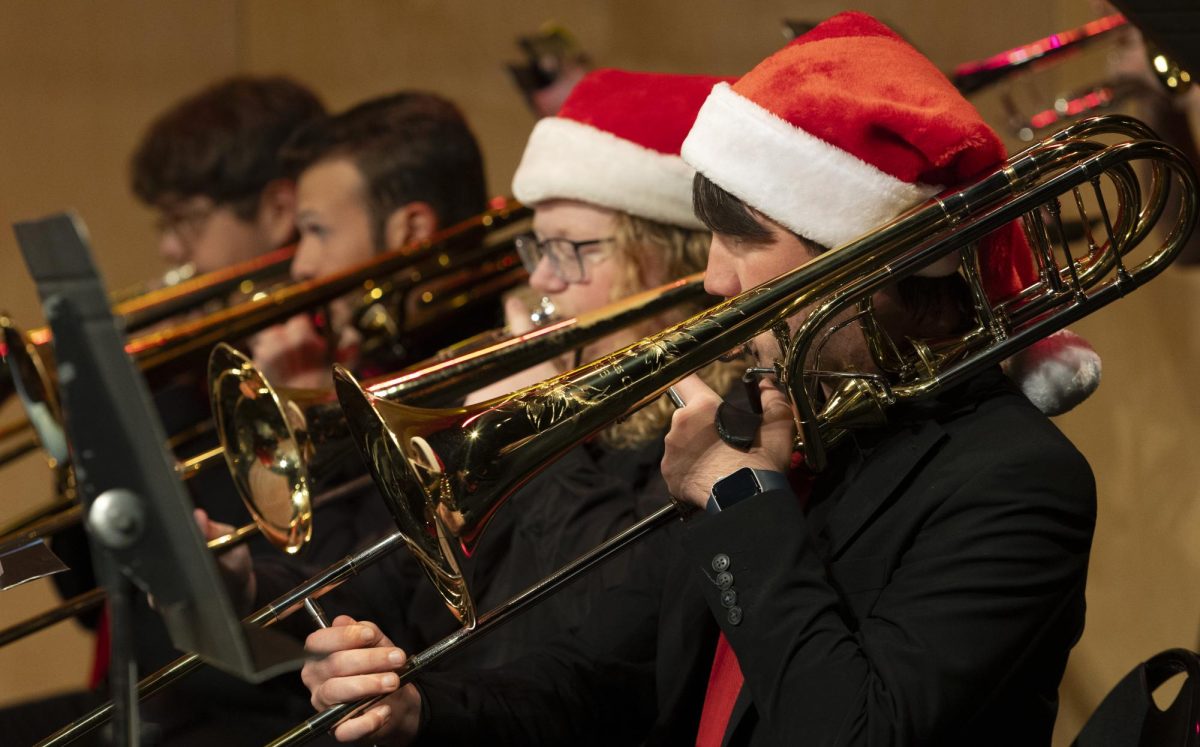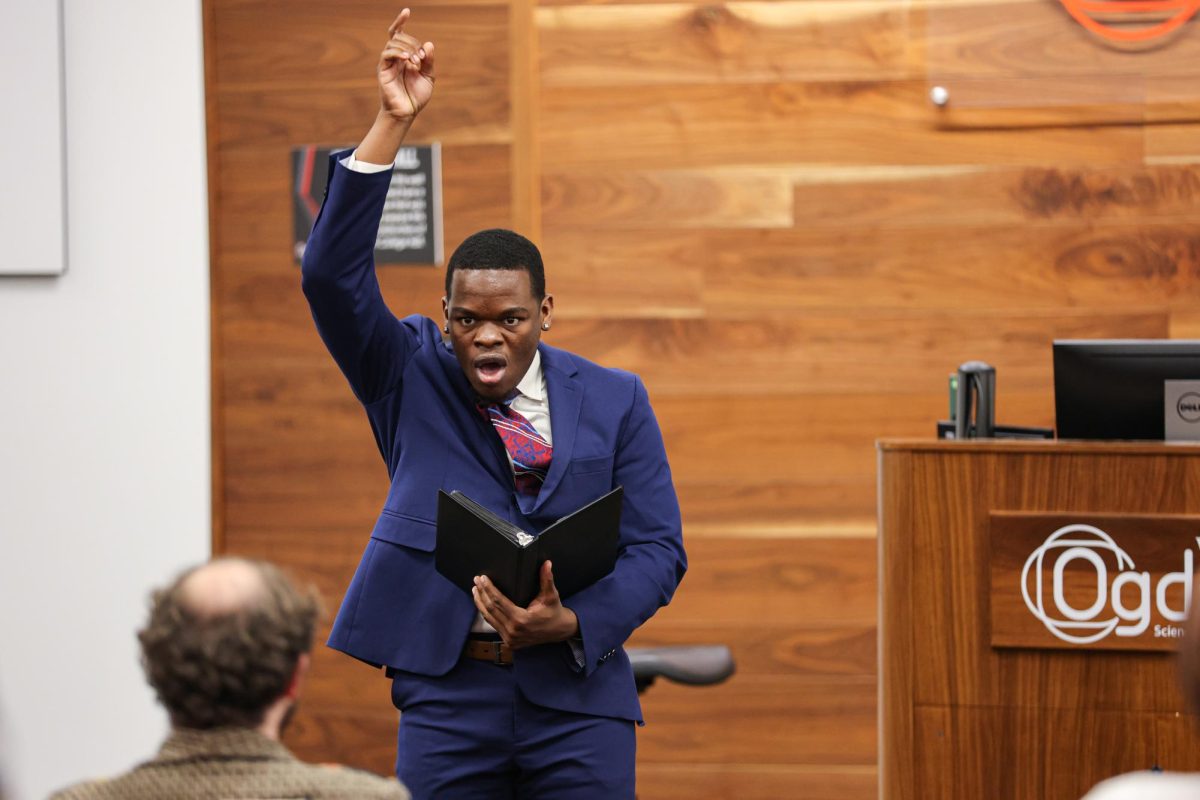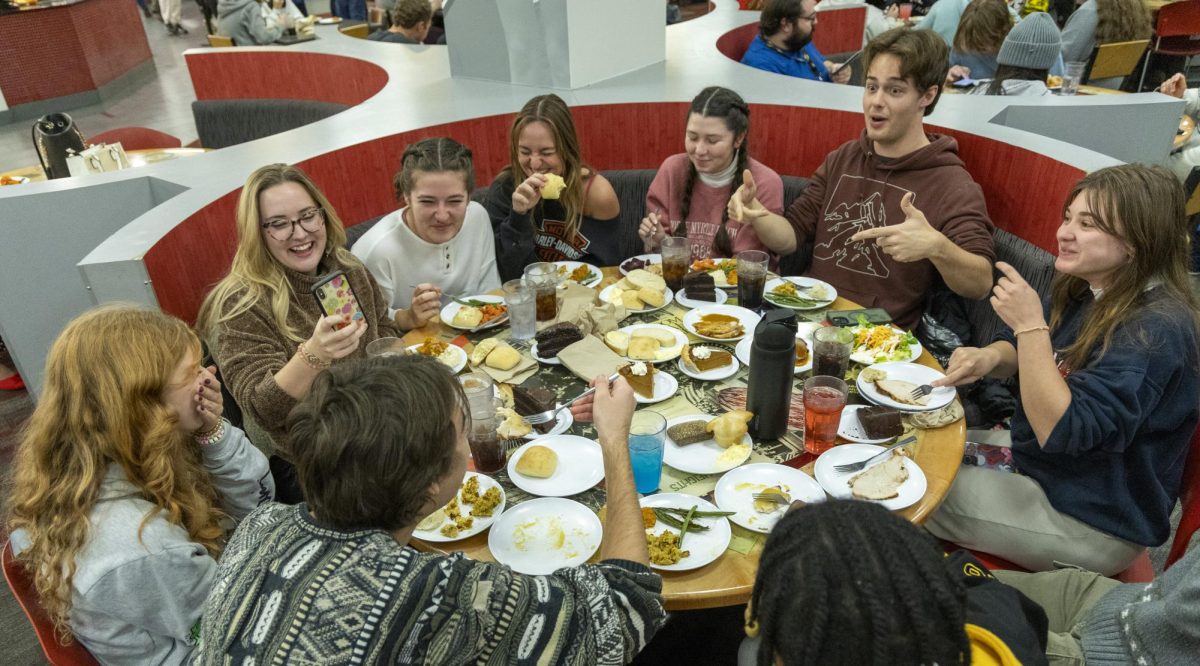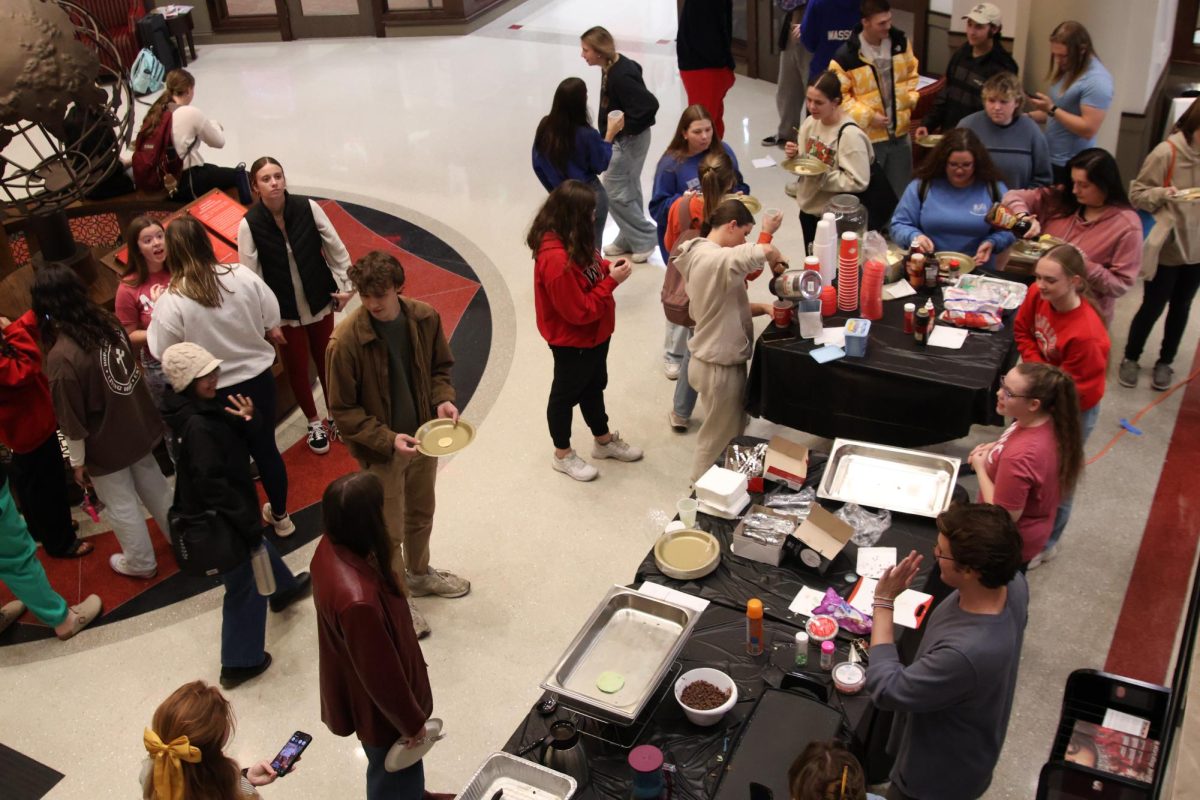Author and member of the Kentucky State Senate, Cassie Chambers, spoke Thursday at Jody Richards Hall as a part of Potter College of Arts and Letters Cultural Enhancement Series (CES).
CES was curated to provide the campus to meet a diverse group of influential artists. It is aimed to create a challenge for students, providing them with new ideas and new perspectives.
“Our goal is to bring the best of the liberal arts to our campus,” Tony Harkins, professor and cultural enhancement committee chair, said.
Chambers discussed her debut novel “Hill Women: Finding Family and a Way Forward in the Appalachian Mountains” and the experiences that led to its release. As a woman from Owsley County, she recognized the lack of proper representation in the media and entertainment of Appalachian people, specifically women.
“There was a moment in time, maybe 2016, 2017, where the world was really interested in hearing stories about Appalachia,” Chambers said. “In those conversations, a lot of times women were getting overlooked and the stories of women were getting overlooked. In my experience, women have been such leaders in those towns and those communities.”
Chambers highlighted her grandmother, who she called granny, and her Aunt Ruth as two major people who helped lead her to where she is today. Their biggest contribution was not something they did directly to her, but rather what they did to support her mother to further her education.
Her granny was never able to get a proper education due to being a part of a large family that needed her help to support them. Because of this, her granny decided that her goal was to have one of her own children graduate high school.
“She started trying to talk to them about how education is important, you should begin an education, you should stay in school, keep going,” Chambers said. “One after another, that dream didn’t work out for each of the first kids.”
Chambers’ Aunt Ruth had become the closest to graduating from high school. However, she came down with an illness that, due to the poverty-stricken area, was not easily curable. Her granny’s wish then relied on Chambers mother.
“My mom was the one that the goal happened for, she was able to graduate high school,” Chambers said. “She was able to do that in part because granny and Ruth supported her. They said this was something that was important to us, and we want you to be able to do this in part because we weren’t able to.”
After graduating, her mother went to Berea College. Berea College is a school in Berea, Kentucky that provides free tuition to admitted students with a focus on supporting first-generation students, specifically those from Appalachia.
This institution was life-changing for Chambers’ mother and her family.
“Although she was the one that got to have those opportunities [go to college], it was something that the people, the women in the family, worked for for a very long time,” Chambers said.
The story of her mother helped Chambers recognize that the opportunities she was provided with as an individual were things she owed to other people.
“It was the sacrifice of my granny working really, really hard and extra so that my mom had time to go to high school,” Chambers said. “It was Ruth working hours in the tobacco fields and giving that money away to my mom. It was because of all these people, all these women, all these institutions, that helped me to where I had a chance to succeed and thrive.”
Earning two Ivy League degrees, from Yale and Harvard, was how Chambers honored her family and their struggles. Her biggest highlight in her career following her graduation was her assistance in creating Jeanette’s Law, an act dictating that victims of domestic violence are not required to pay the legal fees of their abusive spouses.
She had spent much of her post-graduate career working with low-income women, sometimes for free. One case, the one that led to the establishment of Jeanette’s law, was the turning point.
“ … Jeanette came to me after her husband had become physically violent towards her for a number of years, the violence had escalated, and one night she came home from work, he demanded that she fix him some dinner, and she said ‘I’m not going for you tonight,” Chambers said. “He flew into a rage, he assaulted her, drug her into the bathroom, he got a loaded gun, he raised it, pointed it at her, and he fired it.”
Fortunately, the bullet only went through her sleeve, and Jeanette McCue, the victim, survived. During this case, Chambers informed McCue that she would have to pay her abusers legal fees as that is what the law at the time stated.
The two later came together and decided that was not right and that they wanted to change it. It was with McCue’s story and her ability to present the story to anyone who asked and listened, that the law was overturned and Jeanette’s Law was set in its place, Chambers said.
This event in Chambers’ life was what caused her to want to write a book portraying the lives of those in Appalachia.
“I felt like I had some experience, some ideas, some things I wanted to say about Appalachia, about the women, about the things I had seen in my life, about my journey,” Chambers said. “And so, I wrote the book ‘Hill Women’, which tells the story of three generations of women in my family, about the women I met who were all from Kentucky, and about the experience, about the value of those women, the values of their stories.”
The story Chambers told was raw and emotional on many levels, and sophomore McKenna Ravenscraft felt empowered by it.
“I really enjoyed listening to the story about her relatives and life,” Ravenscraft said. “I like that she went back to her roots, back to Appalachia, and told the story of that.”
News Reporter Shayla Abney can be reached at [email protected]





